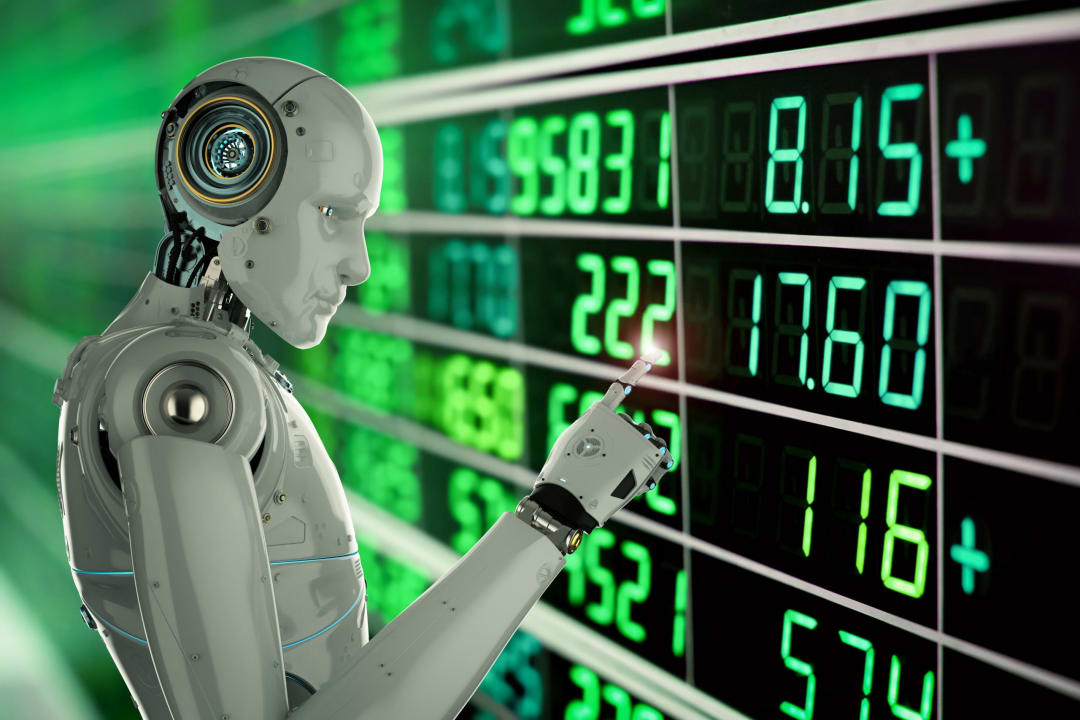

How AI is Changing Financial Markets
The financial industry has undergone significant transformations in recent years, and artificial intelligence (AI) has been at the forefront of this change. AI has revolutionized the way financial markets operate, making them more efficient, accurate, and profitable. From automating trading processes to enhancing risk management, AI has had a profound impact on the financial sector. In this article, we will explore the ways in which AI is changing financial markets and what the future holds for this technology.
Automation of Trading Processes
One of the most significant ways in which AI is changing financial markets is through the automation of trading processes. AI-powered algorithms can analyze vast amounts of data in real-time, allowing for lightning-fast trades to be executed with precision and accuracy. This has enabled high-frequency trading firms to dominate the market, accounting for a significant portion of daily trading volumes.
AI-powered trading algorithms can analyze news, social media, and other data sources to identify trading opportunities and make predictions about market trends. This has enabled traders to react quickly to changing market conditions, making split-second decisions that can mean the difference between profit and loss.
Enhanced Risk Management
AI is also being used to enhance risk management in financial markets. By analyzing vast amounts of data, AI algorithms can identify potential risks and alert traders and investors to potential dangers. This has enabled firms to better manage their risk exposure, reducing the likelihood of costly mistakes.
AI-powered risk management systems can analyze market data, credit reports, and other sources to identify potential risks. This has enabled firms to make more informed investment decisions, avoiding high-risk investments and focusing on those that are more likely to generate returns.
Personalized Financial Services
AI is also being used to provide personalized financial services to customers. By analyzing customer data, AI algorithms can provide tailored investment advice, helping individuals to make informed decisions about their finances.
AI-powered chatbots are being used by banks and financial institutions to provide customers with instant support and guidance. These chatbots can answer questions, provide investment advice, and even help customers to complete transactions.
Predictive Analytics
AI-powered predictive analytics is being used to analyze vast amounts of data, allowing firms to make more informed investment decisions. By analyzing market trends, economic data, and other sources, AI algorithms can make predictions about future market movements, enabling firms to position themselves for success.
Predictive analytics is being used in a variety of ways, including:
- Identifying potential investment opportunities
- Predicting market trends and movements
- Identifying potential risks and dangers
- Optimizing portfolio performance
Compliance and Regulation
AI is also being used to enhance compliance and regulation in financial markets. By analyzing vast amounts of data, AI algorithms can identify potential compliance issues, alerting firms to potential dangers and enabling them to take corrective action.
AI-powered systems can monitor transactions, identify suspicious activity, and flag potential compliance issues. This has enabled firms to reduce the risk of non-compliance, avoiding costly fines and reputational damage.
Cybersecurity
AI is being used to enhance cybersecurity in financial markets, protecting firms from the growing threat of cybercrime. By analyzing network traffic, AI algorithms can identify potential threats, alerting firms to potential dangers and enabling them to take corrective action.
AI-powered systems can detect and respond to threats in real-time, reducing the risk of data breaches and cyber attacks. This has enabled firms to protect their customers’ sensitive information, maintaining trust and confidence in the financial system.
The Future of AI in Financial Markets
As AI continues to evolve and improve, we can expect to see even more significant changes in financial markets. Here are a few potential developments that could shape the future of the industry:
- Autonomous Trading: AI-powered autonomous trading systems could become the norm, allowing for fully automated trading decisions to be made without human intervention.
- AI-Powered Portfolio Management: AI could be used to manage investment portfolios, making fully automated investment decisions based on market data and trends.
- Personalized Financial Advice: AI could be used to provide personalized financial advice to individuals, helping them to make informed decisions about their finances.
- Enhanced Risk Management: AI could be used to enhance risk management, identifying potential risks and providing alerts to traders and investors.
Challenges and Concerns
While AI has the potential to revolutionize financial markets, there are also concerns and challenges that must be addressed. Here are a few potential issues:
- Job Displacement: The automation of trading processes and other financial functions could lead to job displacement, as machines replace human workers.
- Bias and Discrimination: AI algorithms can perpetuate bias and discrimination, particularly if they are trained on biased data.
- Lack of Transparency: AI decision-making processes can be difficult to understand and interpret, raising concerns about transparency and accountability.
- Cybersecurity Risks: The increased use of AI in financial markets could create new cybersecurity risks, as hackers and cybercriminals seek to exploit vulnerabilities in AI-powered systems.
Conclusion
AI is transforming financial markets, enabling firms to operate more efficiently, accurately, and profitably. From automating trading processes to enhancing risk management, AI has had a profound impact on the financial sector. As the technology continues to evolve and improve, we can expect to see even more significant changes in the industry. However, it is also important to address the challenges and concerns that arise from the increased use of AI in financial markets, ensuring that the benefits of this technology are shared by all.




